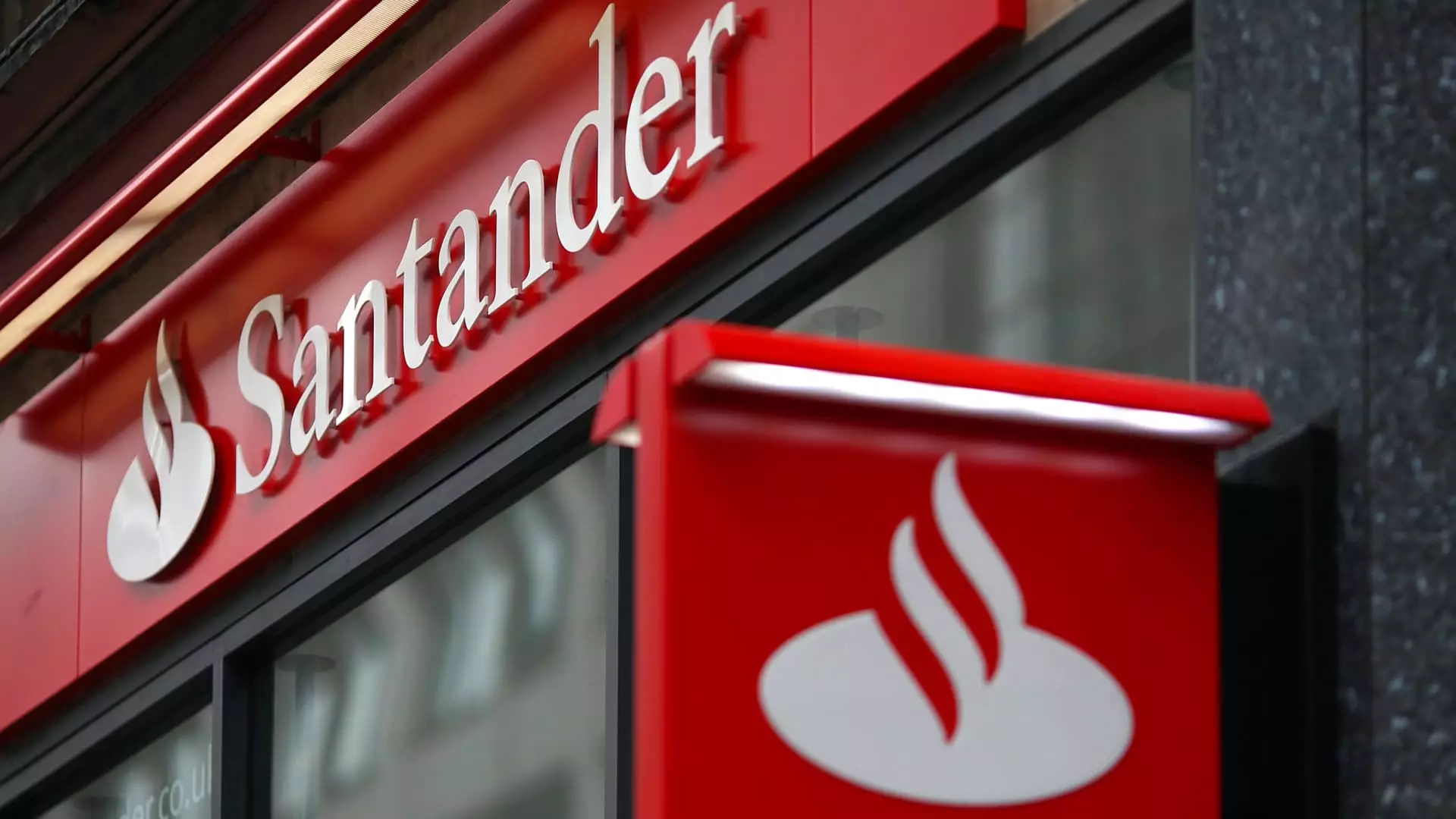Santander’s recent announcement to acquire TSB for a staggering £2.65 billion has sent ripples through the financial corridors, but beneath the surface lies a troubling narrative masked by optimistic PR spin. The move, seemingly heralded as a strategic boon, raises unresolved doubts about the bank’s genuine commitment to the UK market. For years, Santander has painted a picture of stability and long-term investment in Britain, despite mounting concerns about declining profitability and a shrinking foothold. Now, with a costly acquisition on the table, it’s tempting to ask whether Santander’s interest is rooted in strategic growth—or simply a desperate attempt to salvage its waning influence in a fragile market it appears reluctant to own.
The overall tone appears calculated: buy now, stabilize later. But at what cost? The British banking industry has long prided itself on resilience and independence, yet giant players like Santander seem motivated more by opportunism than solid commitment. The idea that this deal will generate a 20% return on invested capital by 2028 cannot obscure the fact that Santander’s British division has struggled financially—declining profits, branch closures, layoffs—signaling a deeper malaise. Is this acquisition truly an investment in growth or a quick fix that ignores the deeper structural issues?
Economic and Political Underpinnings: The Shadow of Turmoil
The timing of Santander’s bold move is hardly coincidental. The UK’s economic landscape is increasingly volatile, with domestic political pressures and Brexit uncertainties casting long shadows. Furthermore, the underlying political tension in Spain—particularly around Catalonia—lends a layer of complexity to this financial dance. Sabadell’s recent struggles to fend off a hostile takeover from BBVA reveal how fragile the banking turf is in the Iberian Peninsula. Sabadell’s desperate attempt to avoid a merger with BBVA by selling TSB to Santander underscores a broader picture: banks are entangled in a web of strategic defensive measures, often at the expense of transparency and market stability.
This deal is not just about profitable expansion but also about geopolitical maneuvering. As Madrid attempts to navigate Catalonian independence sentiment and European competition, banks like Sabadell and BBVA are caught in a high-stakes game of survival and dominance. Santander’s buy-in could therefore be interpreted as a strategic pivot, insincerely aimed at consolidating assets, while underlying tensions threaten to destabilize the entire scene. Political interference and regulatory hurdles are unlikely to be mere afterthoughts; they are intrinsic to the operation’s success or failure.
The Broader Impact: A Warning Sign for Europe’s Banking Future
Santander’s aggressive pursuit of TSB should serve as a wake-up call—not only for Britain but for the broader European banking landscape. Mergers and acquisitions, once viewed as sophisticated growth tools, are increasingly driven by short-term financial engineering rather than genuine value creation. Indeed, the European Commission’s reluctance to obstruct the deal suggests a tacit acceptance of market consolidation, even at the expense of local employment and market competitiveness.
This pattern raises serious concerns about the future of banking stability in Europe. When the focus shifts to consolidating assets for quick gains, the risks for consumers and economies escalate. Job security becomes secondary, and communities suffer the consequences of branch closures and layoffs—actions justified as “strategic” but often driven by shareholder profits rather than customer needs. Santander’s own track record regarding the U.K. market—the decline in pre-tax profits and recent restructuring—arguably signals that the bank is not entirely confident in its long-term strategy. Instead, it appears to be chasing short-term gains that could backfire, leaving the market more fragile than before.
The Cultural and Ethical Dilemma: Who Really Benefits?
The core issue here transcends mere financial figures; it’s about the ethical and cultural implications of unchecked corporate expansion. Who benefits from these mega-deals? Certainly not the everyday British consumer or the bank’s loyal employees. Instead, the dividend seems to flow predominantly to shareholders and corporate executives, while the broader economy bears the strain of reduced competition and growing inequality.
Furthermore, the political implications cannot be ignored. Governments, whether in Madrid or London, appear increasingly influenced by corporate interests—tacitly supporting consolidation under the guise of economic stability. Such policies threaten to undermine the very principles of fair competition and market diversity. As banks grow larger and more intertwined, the democratic oversight of financial institutions risks diminishing, leaving ordinary citizens vulnerable to the caprices of monolithic banking giants.
Ultimately, Santander’s willingness to push such a costly acquisition amid turbulence and uncertainty reveals a troubling prioritization of shareholder returns over societal well-being. It exemplifies a shift toward a more reckless, profit-driven financial landscape—one where long-term stability is sacrificed at the altar of short-term gain. This strategy, cloaked in promises of growth and resilience, may very well sow the seeds of future instability, especially if the underlying vulnerabilities in both Spanish and British markets are left unaddressed.

